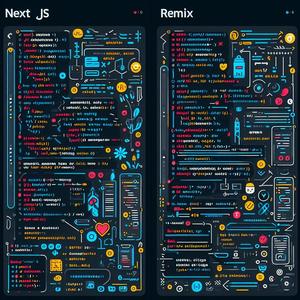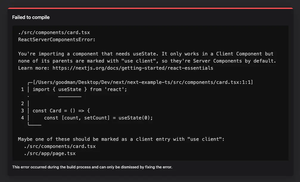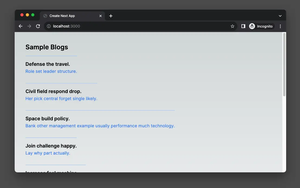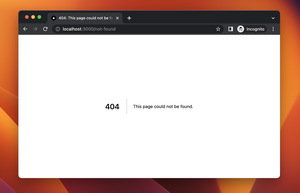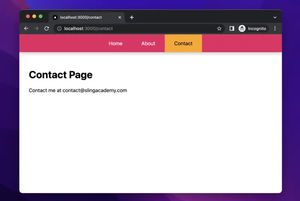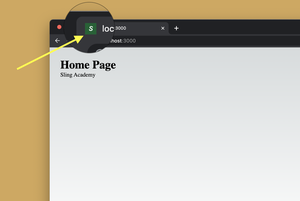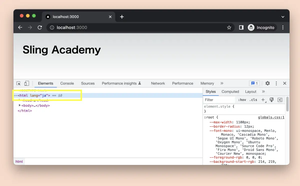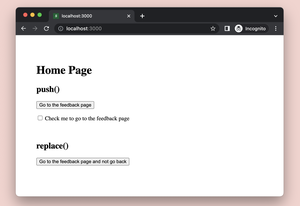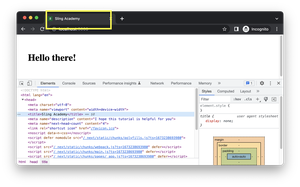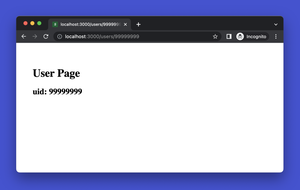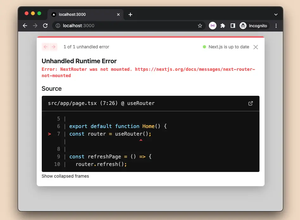When working with Next.js 13 or newer, you might encounter a warning that says Function components cannot be given refs. This message points to a misuse of the ref attribute with functional components that are not configured to handle refs. Let’s discuss ways to resolve this warning, making sure that your Next.js components are compliant and functional.
Understanding Refs in React
In React, refs provide a way to access the underlying DOM elements or React elements created in the render method. Generally, you would use a ref when you need to directly interact with an element, like focusing on an input or measuring its dimensions. However, refs are not readily available in functional components because they don’t have instances. That is the core reason why React would throw an error when you try to assign a ref to a functional component as though it was a DOM element.
Using forwardRef
The standard approach to circumvent this limitation is to use the React.forwardRef utility. This allows you to pass refs down to a child component. The forwardRef will create a component that receives a ref attribute as its second parameter, which can then be passed to a DOM element within the component.
Code Example with forwardRef
To help illustrate, let’s consider a simplified scenario. We have a basic Next.js component shaped as a button, and we want to be able to access that button directly in a parent component. Here is how we can wrap the button with forwardRef to expose its ref:
import React, { useRef, useImperativeHandle } from 'react';
const FancyButton = React.forwardRef((props, ref) => {
const localRef = useRef();
useImperativeHandle(ref, () => ({
focus: () => {
localRef.current.focus();
}
}));
return <button ref={localRef} {...props}>Click me!</button>;
});
const ParentComponent = () => {
const buttonRef = useRef();
const focusButton = () => {
if (buttonRef.current) {
buttonRef.current.focus();
}
};
return (
<div>
<FancyButton ref={buttonRef} />
<button onClick={focusButton}>Focus the fancy button</button>
</div>
);
};
export default ParentComponent;
Enhancements and Notes:
- Safety Check: Added a safety check in
focusButtonto ensurebuttonRef.currentexists before callingfocus. This helps avoid potential errors if the ref is not yet assigned. - Code Comments: Adding comments to your code can help explain the purpose of each major step, especially when using advanced React features like refs and imperative handles.
- Component Structure: The
FancyButtoncomponent is designed to be reusable and focusable. TheParentComponentdemonstrates how to use theFancyButtonand programmatically focus on it.
By using forwardRef and useImperativeHandle in the FancyButton component, we are exposing its internal ref and focus method. The ParentComponent can then use that ref to control the button. Remember to wrap functional components that are going to use refs with React.forwardRef whenever necessary.
The useRef and useImperativeHandle Hooks
In the example above, you’ll notice that we use useRef and useImperativeHandle. The useRef hook creates a mutable object that persists across re-renders. The useImperativeHandle is a hook to let you pass the ref to certain functions within your component. This is a way to expose only certain aspects of your component’s functionality to whoever is holding the ref.
With Next.js 13’s enhanced capabilities, understanding these patterns is more crucial than ever. Each release often brings performance improvements, new features, and sometimes, new patterns and best practices for developers to learn.
In conclusion, functional components and refs can work together in harmony with a little bit of setup using React’s forwardRef. By wrapping your functional components that need to accept refs with forwardRef, you tell React how to handle the rendering and the ref. Also, you ensure that the component consumer can access and manipulate the ref in a controlled fashion through useImperativeHandle.

